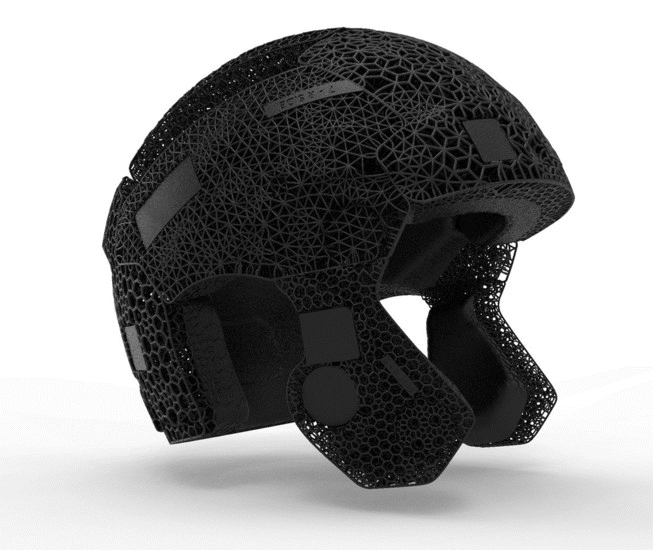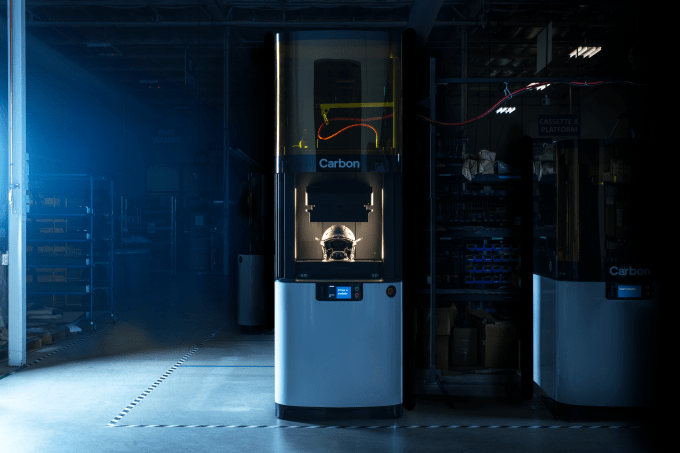Just in time to ride the last of the pre-Super Bowl buzz, Carbon today announced that it’s teaming up with sports equipment giant Riddell to 3D print customized football helmet padding.
Referred to as “Diamond technology,” the collaboration creates lattice design pads of resin that are custom built to a player’s dimensions and position. Carbon says the pads were created by analyzing data from more than five million on-field collisions collected by Riddell smart helmets.
“We scan heads, and then you’ve got the shell of the helmet,” Carbon co-founder and CEO Joseph DeSimone told TechCrunch. “The gap between the head and the shell is now customized. That space is now custom to everybody, and we fill that space with a lattice that controls the impact of the sport. It allows you to get really great performance as you control the impact that the players see.”

The technology arrives as the health impacts of football are receiving stronger scrutiny. The repetitive nature of football hits has been tied to a number of unfortunate side effects, including, notably, CTE. A recent study found that the dementia-causing condition was found in 110 out of 111 brains of autopsied football players.
“As someone who’s spent thousands of hours watching film, I know that no two players play the same way,” quarterback and Riddell spokesperson Peyton Manning said in a release tied to the news. “They all have different styles and tendencies on the field, which is another key benefit to Riddell’s Diamond technology. With the SpeedFlex Precision Diamond, players are not only experiencing the latest in head protection, they can also dictate where the helmet is positioned to improve sight lines and maximize field vision.”

The customized helmets will be made available for pro and college level athletes later this year. They’ll be printed using the L1, a newly announced printer designed for manufacturing that brings the company’s Digital Light Synthesis technology to a larger scale. The L1 has 10 times the build area as its predecessor, the M1 and five times the M2 (that’s “M” for “Medium” and “L” for “Large, by the way).
The advent of the new printer could go a ways toward helping Carbon realize its goal of bringing this technology to a manufacturing-level scale. Of course, the company’s already got a decent head start on that front, having produced 100,000 pairs of mid-soles through its ongoing partnership with Adidas.
from TechCrunch https://tcrn.ch/2UBIbrV

No comments:
Post a Comment